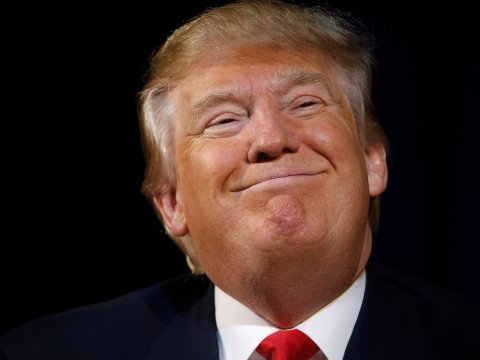Posted on January
31, 2018
NAFTA Nohow
Has Trump walled himself in?
by
Daniel
Clark
Renegotiations of the North American Free Trade
Agreement are reportedly moving very slowly, and it’s no wonder. As eager as Canadian Prime Minister Justin Trudeau
and Mexican President Enrique Pena Nieto sounded about reworking the deal,
neither of them is proposing any major alterations, and most of the proposals
coming from the Trump administration – such as a five-year sunset clause, and
the elimination of any binding dispute settlement system – are non-starters.
The only reason these talks are taking place is
because Trump, who had promised to “tear up” NAFTA early in his presidential
campaign, said he would withdraw from it if Canada and Mexico did not agree to
negotiate. Contrary to the opinions of
overpaid media legal analysts, he does not have the power to follow through on
that threat. Yes, Article 2025 of NAFTA
does allow any party to withdraw six months after notifying the other parties,
but Donald Trump is not a party to NAFTA.
The United States is, and it is Congress, and not the president, that
the Constitution empowers to regulate commerce with foreign nations.
 For
us to pull out of NAFTA, a resolution to do so would need to pass through both
houses of Congress. That’s not likely to
happen. If, on the other hand, Trump
were to submit a renegotiated NAFTA to Congress, it would almost certainly
pass. Perhaps realizing this, Trump
changed his pledge from discarding the deal to revising it instead. Because he’s never specified the changes he
wants, any new agreement will give him a pretext to declare victory.
For
us to pull out of NAFTA, a resolution to do so would need to pass through both
houses of Congress. That’s not likely to
happen. If, on the other hand, Trump
were to submit a renegotiated NAFTA to Congress, it would almost certainly
pass. Perhaps realizing this, Trump
changed his pledge from discarding the deal to revising it instead. Because he’s never specified the changes he
wants, any new agreement will give him a pretext to declare victory.
The reason that’s significant is that Trump claims
this is how he’s going to make Mexico pay for a border wall. “They can pay for it indirectly through
NAFTA,” he told the Wall Street Journal. “We make a good deal on NAFTA, and I’m going
to take a small percentage of that money, and it’s going toward the wall. Guess what?
Mexico’s paying.”
No, it isn’t, because there won’t be any “that money”
to take. NAFTA is essentially a
multilateral agreement to lower tariffs among the three nations. It is not a series of financial transactions
between governments. Whatever the
outcome of the negotiations, it will not result in Mexico paying the United
States any money. Trump’s assertion that
it will rests on one of two faulty premises: (a) that a trade deficit
represents a wealth transfer from one nation to another, rather than the
equitable trading of money for material goods, such that the purchase of fewer
Mexican goods by Americans would somehow mean more money left in the United
States Treasury; or (b) that if we were to raise tariffs on Mexican imports,
those tariffs would be paid by the Mexican government, and not by American
consumers. Neither of these is
true. Mexico would not pay a single
centavo to the United States in either case.
Since Trump is a master negotiator who’s constantly
outwitting his foes in a game of thirteen-dimensional chess, we’ll have to
assume he has some brilliant tactical reason for showing his entire hand to
President Nieto, but what might that reason be?
Trump has no leverage that might compel Nieto to make any new agreement
that would be advantageous to our country at Mexico’s expense. The best we can possibly hope for is that,
with the benefit of hindsight, some unwisely adopted provisions will be dropped
from the agreement to the benefit of all three parties. Unfortunately, Trump’s introduction of the
wall into the discussion will likely prompt Nieto to reject any such proposal,
however benign.
Perhaps Trump is using double-reverse psychology, by
which Nieto is duped into thinking Trump wants the NAFTA talks to fail, and
therefore, spitefully, proposes a clause requiring his own country to pay for
our border wall. But let’s just suppose
that, by some incredible fluke, this doesn’t work.
If the talks break down, NAFTA will simply remain
as-is. That means there will be no
imaginary Mexican money to build the wall that will not really be a wall, and
for which Trump is properly trying to obtain congressional funding anyway. Moreover, he’ll have failed to fulfill his
promise to do some unspecified thing or other to NAFTA, which he accuses of
ravaging our nation’s factories, even though it has done nothing to inhibit the
great American manufacturing renaissance he boasted about in his State of the
Union Address.
On the whole, that’s not a bad thing, but why must we
sort through so many Trumpian unrealities just to
figure that out?
The Shinbone: The
Frontier of the Free Press
Mailbag . Issue
Index
. Politimals
. College
Football Czar